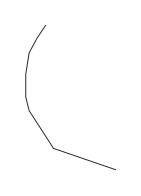VIRUS
- why do they steal cell membranes
- why are they not considered alive
Reasons for virus invading membranes and considering it as non living
Virus is a microscopic parasite, smaller than a bacteria. it lacks capacity to thrive and reproduce outside a host body. an idividual viral particle is called virion, which consists of genetic material DNA or RNA enclosed in a protien coating. Viruses are classified into 2 types- those with an outer lipid containing envelope and those without an envelope. Enveloped viruses are fragile in the environment and non- enveloped viruses are hardier outside a host and survive for longer periods between hosts.

A virus is a parasite that requirs replication in a host cell as it cannot reproduce itself outside the host . Viruses that have envelope are typically derived from the portion of host cellmembranes (phospholipids, proteins and glycoproteins). This help viruses avoid the host immune system. Glycoproteins on the surface of envelope identify and bind to receptors on host membrane. The viral envelope fuses with hosts membrane, allowing the capsid and viral genome to enter and infect the host.
Step by step
Solved in 6 steps with 1 images









